Remember all those fancy buildings they had erected? It seems that they hadn't actually paid for them. And the builders wanted their money:
"THE AFFAIRS OF PATTISONS, LIMITED.
An Edinburgh correspondent telegraphed on Saturday last-In the Court of Session an intimation was ordered of two petitions presented to the First Division for the winding up of Patisons, Ltd., under the supervision of the Court. One is at the instance of Mr. James Kinnear, builder and contractor, of Leith; and the other at that of Messrs. Redpath, Brown, & Co., iron merchants, of Edinburgh. Mr. James Kinnear is a creditor to the extent of £1,852 16s, representing the balance of an account due in connection with the erection of new bonded stores in Breadalbane Street, Leith. Messrs. Redpath, Brown, & Co. explain that they are creditors to the extent of £1,189 19s 6d. as the balance of an account for ironwork. The petitioners say that the company is insolvent and unable to pay its debts, and should be wound up by the Court. They suggest that Mr. J. Hamilton Buchanan, of Edinburgh, should be appointed liquidator. The other petition is presented by Mr. John Martin, builder and contractor, Edinburgh, and Mr. P. L. Henderson, architect, Edinburgh. The former is a creditor to the amount of £2,412 16s 4d, and the latter for the sum of £1,042 9s. They ask for a judicial winding up of the company, and suggest that either Mr. Francis Moore, C.A., Edinburgh, or Mr. R. C. Millar, C.A., Edinburgh, should be appointed liquidator."
Belfast News-Letter - Monday 16 January 1899, page 8.
That only adds up to around £6,500 owed by Pattisons. Peanuts compared to the tens of thousands of pounds of shortfall in their accounts. The company, however, would be too quick for them. On 19th January they called a meeting of shareholders and proposed a voluntary liquidation. Note how it's Robert who does all the talking:
"PATTISONS LIMITED.
SHAREHOLDERS' MEETING.
An extraordinary general meeting of the shareholders of Pattisons Limited was held in Queen-street Hall, Edinburgh, yesterday afternoon. Mr. Robert Pattison, chairman of directors, presided, and there was an attendance of about eighty. The directors present were Messrs. Robert and Walter Pattison, the other two members of the board being absent.
At the opening of the proceedings the Chairman said - It falls upon me, as chairman of the directors, to preside at this meeting, and it is with the utmost regret that I do so. There has been circulated, along with the notice calling this meeting, a printed report of the proceedings at a meeting of creditors held on the 6th inst., which report gives pretty full information concerning the company's affairs. Our company carried on business to a large extent on credit, but the directors did not think the credit was of undue amount. It was, however, such an amount that when one of the creditors demanded repayment we could not pay. Every one knows that when he borrows money he is largely within the power of those who lend it, but I never expected to realise in my own person the adage that the borrower is a servant to the lender. I thought I was rich, but now I am penniless. Being unable upon demand to meet our liabilities, the leading creditors met, and called in Mr. Tait and Mr. Murray, the one an accountant in Edinburgh, the other an accountant in Glasgow, and instructed them, with our assent, to make an investigation of our affairs. The business having thus, as it were, being taken out of the directors hands, it is scarcely for me to go into details. The right course is, I think. for me to call upon the accountants to give you such further explanation as may appear to them necessary, and I accordingly beg now to do so.
Mr. Murray, accountant, Glasgow, said it had been suggested that in the preparation of the statement by Mr. Tait and himself there had been considerable delay, and that certain creditors had been benefited by their securities maturing. That had not been the case, and they made no apology for the delay. The creditors had suggested three well-known gentlemen of very considerable experience in the trade to act as a committee along with three to be appointed at that meeting. It would be the business of that committee to consider whether a scheme of reconstruction was possible. If it was possible or practicable, it would be submitted to them in due course.
Mr. Lees asked, as some time had elapsed since the preparation of the balance-sheet, if any material change had taken place in values.
Mr. Murray said, No.
Mr. Tait, chartered accountant, said that, following upon the procedure at a meeting of creditors, it was decided to go into voluntary liquidation, under the supervision of the Court. Surely, then, it was a little ungracious on the pact of certain creditors to present a petition to the Court for official winding up? (Applause.) There was not a single creditor he had heard of, with the exception of the gentlemen who had presented the petitions, who was not quite satisfied with what had been proposed. Any scheme of reconstruction would receive the careful consideration of the liquidators and the advising committee.
An opportunity to ask questions was then given, but no questions were asked. The Chairman then moved the following resolution:- "That it has been proved to the satisfaction of this meeting that the company cannot, by reason of its liabilities, continue its business, and that it is advisable to wind up the same, and accordingly that the company be wound up voluntarily."
Mr. Walter Pattison seconded, and the resolution was aged to, nem. con.
The Chairman further moved, "That John Scott Tait, chartered accountant, Edinburgh, and Robert Alex. Murray, chartered accountant, Glasgow, be appointed liquidators for the purpose of the winding up, and that each of them may act separately and exercise every power which, by the Companies Act, 1862, and Acts amending and extending the same, is conferred on liquidators."
Mr. Walter Pattison seconded.
. . . . . . . . .
The Chairman further moved as follows:-"That the liquidators be instructed to take the necessary steps for having the liquidation placed under the supervision of the Court of Session, and that a committee of Shareholders and creditors be appointed to advise with the liquidators, the members of such committee to be entitled to remuneration for their services out of the liquidation assets."
Mr. Wright seconded, and the motion was also agreed to.
Mr. John Blair said that the three gentlemen who were named by the creditors were Mr. Jas. Ainslie, Mr. R. S. Grey, and Mr. Arthur Sanderson, and the gentlemen who it was suggested should represent the shareholders on the committee were Mr. Thos. Aitken, Mr. Jas. Wright, and Mr. R. Robertson.
In reply to a shareholder, it was stated that Mr. Aitken and his wife held fifty shares each, Mr. Wright twenty shares, and Mr. Robertson two hundred.
The nominations were approved of.
Mr. Todd Lees expressed the hope that the liquidators and the committee would earnestly consider the question of reconstruction. It was to the advantage of all concerned that there should be reconstruction. If there was a final wind-up he did not suppose the creditors would get more, and probably not as much as under reconstruction, which would probably enable them to get full payment, and the shareholders, both ordinary and preference, would come in pro rata for their interest in the concern. Therefore, he hoped that it would be taken into serious consideration by the liquidators that a large company like that, involving so much money, really ought not to be allowed to go down. (Applause.)
Mr. Tait asked the gentlemen who had been appointed members of committee to wait, so that they might have a meeting and consider some sort of way out of the difficulty.
The meeting then terminated, having lasted forty minutes. "
Leeds Mercury - Friday 20 January 1899, page 7.
Robert Pattison was still in denial. Despite the hole in his company's finances having been confirmed by the accountant's report, he remained incapable of seeing that he had done anything wrong. He ran the business using borrowed money but "did not think the credit was of undue amount". As they couldn't pay it back, clearly they had borrowed too much.
"I thought I was rich, but now I am penniless." That was part of the problem. If Robert Pattison hadn't thought himself rich, maybe he wouldn't have wasted so much money on lavish buildings, extravagant publicity stunts and advertising.
The six-man committee appointed at the meeting was to play the key role in the next phase of the catastrophe: the attempt to reconstruct the business as a going concern. The hope was that creditors would see more of their money back if the firm continued to trade rather than the assets being auctioned off.
So often in this crisis hope and optimism triumphed over good sense. All we'll see when I look at the trading that went on in Pattison's shares after the company went into liquidation. Investors just couldn't believe that the money was gone.
Too large to be allowed to fail. Where have we heard that one recently? It might have been something connected to banks. Coincidentally, it was the banks involved in this case that were really in control of events.















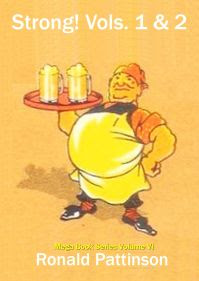


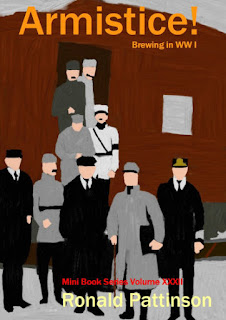
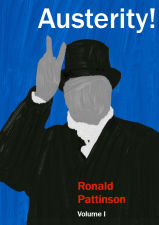

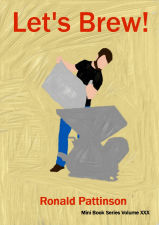


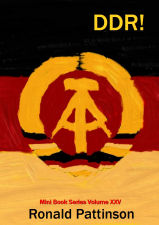


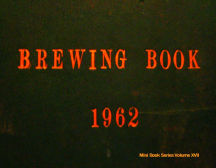
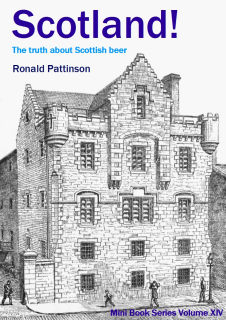
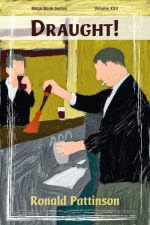



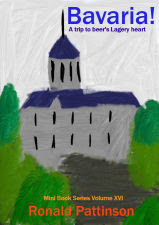

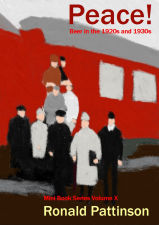


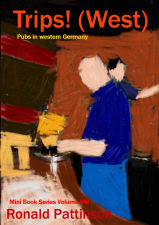
































No comments:
Post a Comment